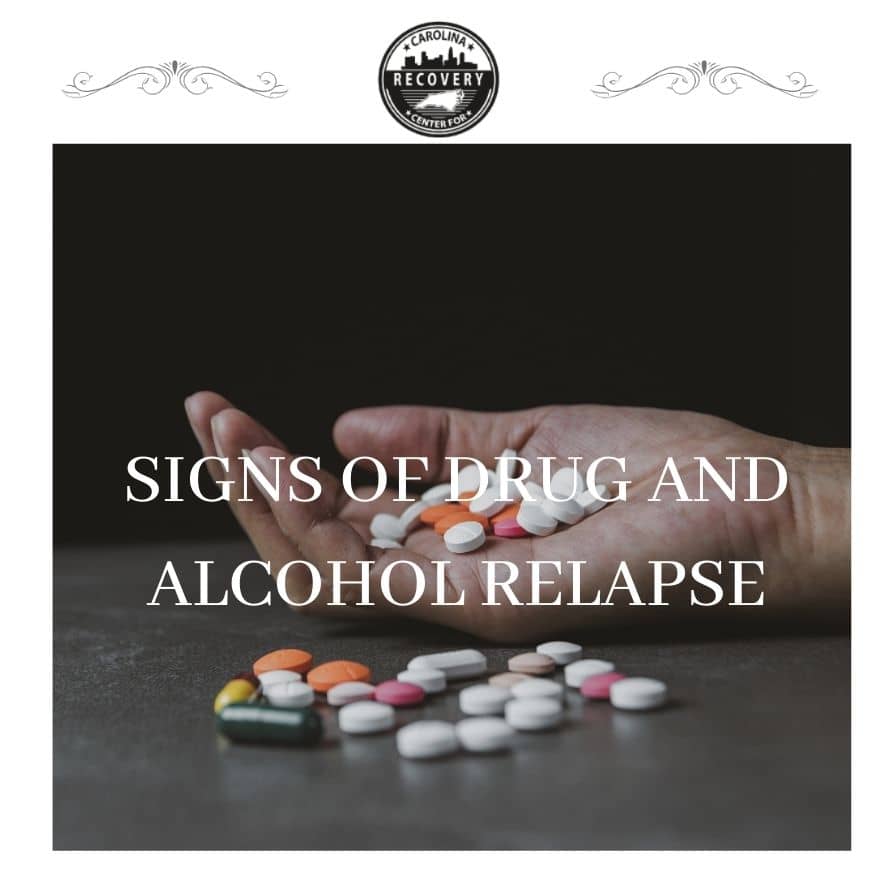Signs of Drug and Alcohol Relapse

Medically Verified: 2/1/24
Medical Reviewer
Chief Editor

All of the information on this page has been reviewed and verified by a certified addiction professional.
Drug and alcohol addiction can cause a person’s life to change dramatically. As people lose control over their substance use, they may experience significant changes in their emotions, physical health, and behaviors. The consequences of addiction can be severe–and sometimes life-threatening.
Comprehensive treatment can give people the opportunity to regain control over their lives, build healthy habits that support sobriety, and learn the skills to avoid relapse for life.
But even with high-quality treatment and a great deal of dedication to recovery, a person may experience a relapse. Relapses can happen for a variety of reasons, and they do not mean that recovery is impossible. Identifying the relapse, learning from it, and moving on are essential steps in the long journey of addiction recovery for many people.
Reach out to the Carolina Center for Recovery specialists to learn more about recognizing the signs of relapse and what steps you can take next.
Common Signs of Relapse
A relapse occurs when someone has returned to drug or alcohol abuse after a period of abstinence. Relapses can be demoralizing or even traumatic, especially if someone has put a lot of time and effort into seeking treatment and developing a good relapse-prevention plan.
A relapse typically doesn’t occur out of the blue. Instead, most people move through stages of relapse, which include:
- Emotional relapse, where a person bottles up emotions, isolates themself, misses appointments, and falls into destructive patterns of eating poorly and not sleeping enough
- Mental relapse, where the person craves alcohol, considers if they could use or drink again, minimizes the consequences of their substance use, and more
- Physical relapse, where the person begins to use drugs or drink again, and all the behaviors that lead up to that outcome
There are several signs of relapse at every stage that you can watch out for in your own behaviors or those of someone you love.
A “slip”
A slip or lapse occurs when someone in recovery uses a minimal amount of a substance–such as having a sip of alcohol or a single hit of marijuana. While these incidents may not seem all too serious, they can signal that the person has opened their mind to using substances again or that they’re experiencing cravings.
Experiencing stress
Stress and addiction are closely linked. People who experience high or chronic stress levels are more likely to abuse drugs and alcohol in the first place. People in recovery who experience a lot of stress are also more likely to relapse. Intense stress can also be a sign that someone isn’t practicing the self-care that will help them avoid relapse.
Unsupportive environment
People in recovery need support, both during and after rehab. Some people leave the security and structure of the treatment facility and find they don’t have the support they need to manage stress and avoid relapse. Spending time with people who drink or use drugs–or those who don’t support their sobriety–can lead people to consider starting to use or drink again.
Hardships
In rehab, people learn how to identify and heal the root causes of their addiction. They work with skilled therapists and other practitioners to learn and practice skills that allow them to manage stress and challenges while maintaining sobriety.
But sometimes, stressors can overwhelm a person’s ability to cope–even when they’ve had treatment. Hardships and traumas, like the death of a loved one, divorce, job loss, and more, can be very challenging for people in recovery. Without getting the additional support they need, some people may relapse.
Nostalgia
Some people in recovery may experience feelings of nostalgia for the days when they used to drink or use drugs. They may remember only the perceived positive parts of their substance use. Instead of recognizing how their substance use harmed their health, opportunities, and relationships, they may reminisce about those days fondly. Feeling nostalgic about substance use could be a sign that someone is having a mental relapse–and that they need immediate help to prevent it from going any further.
Overconfidence
It might seem counterintuitive, but having too much confidence in your ability to stay sober for the rest of your life could mean that a relapse is imminent. People who feel overconfident in their ability to stay sober may not believe they need to stay active and engaged in recovery.
But addiction recovery is an ongoing process–not a final destination. It’s important to find a good balance between optimism about the future and having realistic expectations. Staying active in your recovery and getting ongoing treatment and support is essential.
Get Help Now
Relapses are common. In fact, most people in recovery will have at least one in their lifetime. While a relapse may feel disappointing or like a setback, seeking help to get your recovery back on track is important. Reach out to the caring Carolina Center for Recovery staff to explore your treatment options or to find support during any stage of your recovery journey.

